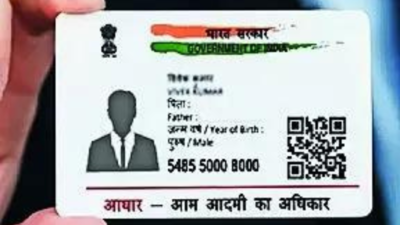Proposed Mandatory Updates for Vehicle Owners and DL Holders in India: Indian road transport ministry

The Indian road transport ministry is considering a new regulation that would require vehicle owners and driving licence (DL) holders to update their personal information, including addresses and mobile numbers, linked to their Aadhaar. This initiative, part of proposed amendments to the Motor Vehicle Act, aims to improve the enforcement of traffic rules and enhance the e-challan system by ensuring that the databases are accurate and current
1. Rationale for the Proposed Rule
The road transport ministry is taking steps to address the challenges posed by traffic violators who evade penalties by changing their contact information. An official highlighted the need for a reliable mechanism to track these individuals, especially those who repeatedly break traffic laws. The current system allows offenders to escape consequences by simply altering their mobile numbers or applying for new driving licences.
2. Enhancing the E-Challan System
Union road transport secretary V Umashankar pointed out that over ₹12,000 crore in e-challans remain unpaid, largely due to the inadequacies of the existing database. Many records are outdated, with some vehicle registration certificates (RCs) and driving licences dating back to the 1960s and 70s. The lack of current mobile numbers and Aadhaar details complicates the enforcement of fines and penalties.
3. Addressing Database Inefficiencies
The ministry is aware that the outdated nature of the databases hinders effective tracking and enforcement. Umashankar emphasized the need for a “clean-up” of the databases to ensure they reflect accurate, up-to-date information. He noted that many records lack essential details, making it difficult for authorities to reach offenders.
4. Mechanism for Updates
To implement the proposed regulation, the ministry is considering establishing specific touchpoints where vehicle owners and DL holders would be mandated to update their information. This could occur during routine vehicle inspections, renewal of licences, or other interactions with transport authorities.
5. Implications of Non-Compliance
Umashankar suggested that if an e-challan penalty remains unpaid for an extended period, the consequences could escalate. Offenders may face increased insurance premiums, and their vehicle registrations or driving licences could be suspended or invalidated. This approach aims to create a more robust system for enforcing traffic laws.
Important Details & Evidence
- The proposal is part of amendments to the Motor Vehicle Act.
- The government has identified a significant amount of unpaid e-challans, indicating systemic issues in tracking offenders.
- Historical data issues have been highlighted as a major barrier to effective enforcement.
Final Takeaways
The proposed regulation to require vehicle owners and DL holders to update their personal information is a significant step towards improving road safety and enforcement in India. By ensuring that databases are current and accurate, the government aims to hold traffic violators accountable more effectively. This initiative reflects a broader commitment to enhancing road safety and reducing incidents caused by reckless driving. The potential consequences for non-compliance could serve as a strong deterrent, encouraging individuals to keep their information up to date.